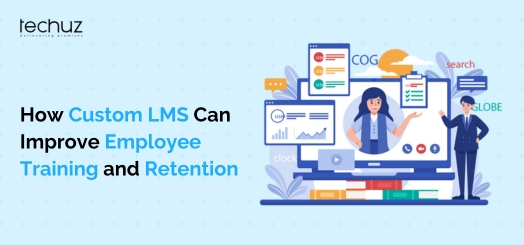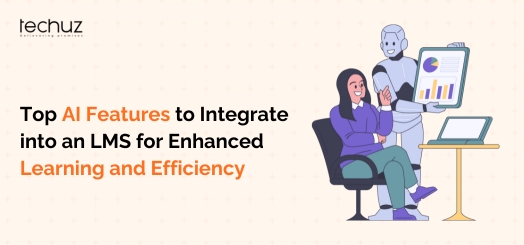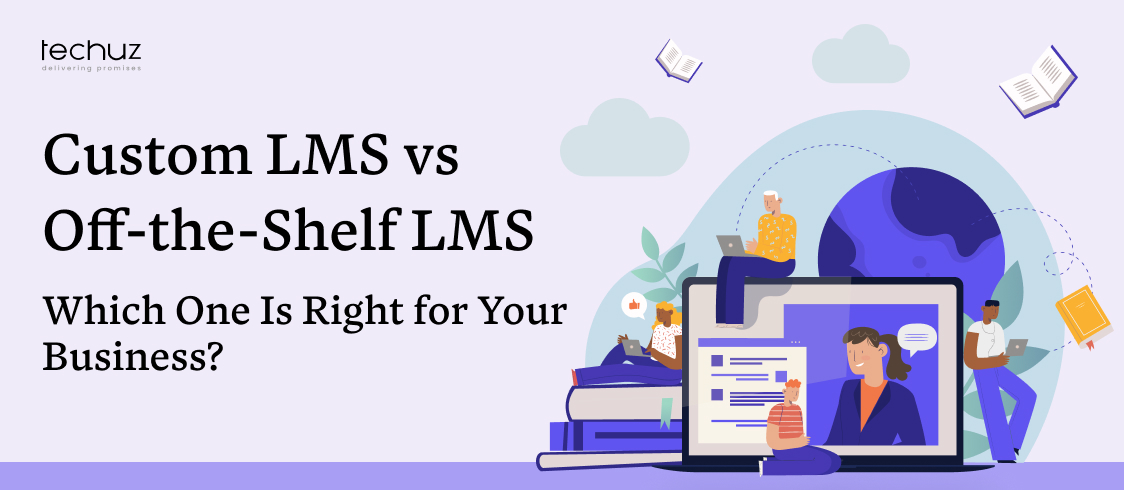Posted on
April 25, 2025
Read time
 11 mins read
11 mins read
Have you considered implementing a learning management system (LMS) for the progression of the employees? Your employees represent the most valuable resource of your company. Furthermore, consider that in a factory setting, each employee plays a cog-like role in achieving the best output. On the downside, high turnover of employees which also results in dissatisfaction can be a problem. Gallup surveys show that just 36% of employees surveyed are fully engaged at work. Too little engagement generally leads to high rates of voluntary turnover, and this could be detrimental to your organization. It may cost as much as two times over their basic wages to replace an individual and constant turnover affects the equilibrium of the management.
A learning management system (LMS) is one of the methods that have been proven to help in retaining employees. This is because when employing an LMS, for instance, it becomes possible to come up with an active development program that enhances employee retention. More the engagement, more is the satisfaction, which lowers attrition rate and saves the money for the organization.
It is essential to invest in training as well as keep employees for the profitability of any business. Well organized training programs guarantee that employees have the relevant skills and knowledge required for effective performance in their jobs, and high retention rate limits the expenses incurred from replacing leavers. Implementing e-learning solutions through tailored learning management systems (LMS) is one of the best ways to earn the objectives above.
Table of Content
How is Employee Retention Defined?
Employee retention refers to sustaining the workers within an organization for as long as possible. There is also an element of time attached to this aspect since infallibly not every employee remains with the company. Whatever the case, such variables as satisfaction with the job, salary, opportunities for advancement, or the risks taken come into play. Due to the need to bring new employees up to speed, employment retention policies are deemed crucial for the success of the business.
What is Custom LMS?
Custom Learning Management System (LMS) is a software platform that is developed to oversee and facilitate employee training activities. In comparison to ready-made LMS solutions, custom LMS is built in line with the organization’s requirements and objectives. Customization may involve aspects such as tailored curricula, embedded testing and evaluation components, and special reporting functionalities based on the organization’s training strategy.
What is the Role of LMS in Employee Training?
1. Reduce the Cycle of Learning Interventions
A custom LMS incorporates, shifts activities online, manages and assesses various activities, where it is easy to deploy. This alleviation of workload from trainers and HR personnel is an advantage since they can redirect their efforts towards strategic undertakings such as content development and personal mentoring.
2. Personalized Learning Path
A custom LMS solves this limitation, in that it can provide customized training solutions to fit individual employees’ job roles. This means that an employee can learn at his or her own speed, relearn difficult sections, and even disregard sections that have already been mastered. personalized training does not just increase engagement but also facilitates better retention of the knowledge earned.
3. Gamification for increased engagement
Adding gamified elements to the LMS, such as quizzes, badges, and leaderboards, can significantly improve employee engagement. Gamification transforms mundane training tasks into interactive and enjoyable activities, motivating employees to complete courses and retain information better.
What is the Impact of LMS on Employee Retention?
1. Reducing turnover through continuous learning
Reducing the workforce is associated with hidden expenses and inconvenience. The customized Learning Management System promotes the continuing evolution, which enhances employee satisfaction and minimizes attrition. Employees tend to remain and be more productive when they see that the organization cares about their development.
2. Career Development Opportunities
An LMS has the ability to offer resources for professional growth such as management courses, field-based accreditations, and expert level training. Employees are more likely to be engaged and motivated when they can envision the next step on their career ladder within the organization.
3. Feedback & Performance Evaluation
It is important for the custom LMS platforms to be incorporated with the employee assessment tools for the benefit of the management. This enables the organizations to take preemptive action in the face of such eventualities ensuring that the workers are cared and appreciated.
What are the Advantages of Custom LMS in Employee Development?
An LMS is an effective medium for training employees, measuring their performance and monitoring their progress. Adopting a customized LMS for training has several advantages. It gives a focused way of learning, makes training content easily available, helps in effectively tracking the employee development process, and significantly improves the training process over time.
1. Varied Training Formats to Meet Individual Needs
A Learning Management System gives organizations the option of providing training in different modalities, including face-to-face instructor-led training, eLearning courses, video and print materials, as well as slides. This variety ensures that employees’ preferred learning modalities are catered for, making the training more productive as well as enhancing the retention of the knowledge imparted.
2. An Affordable System that Offers More
Workplace learning can prove to be costly on many occasions. However, many of those costs can be avoided by switching to a custom LMS sophisticated system. With a custom LMS, training is delivered through a digital platform, eliminating the use of printout materials, and simplifying the process of monitoring trainees. Such an approach reduces expenditure as well as enhances order and accessibility of the training materials.
3. Smooth interaction and Seamless Training Delivery
A Learning Management System (LMS) provides ease in interaction among employee training and development which can be done in a short time. With the use of custom notifications, courses can easily be uploaded to the employees’ dashboard, such that no one misses the training. Also, it has elaborate training history records which makes it a revolutionary system in the administration of employee training programs.
4. Keep an Eye on How Employees Function – Anytime
Thanks to an LMS, organizations do not find it a problem to assess and evaluate how fast employees are moving on with their tasks and even how they are performing at that given moment. This helps to clarify the strong points of the respective employees and weak points as well which enables efficiency in task allocation, hence enhancing productivity.
Main Features of a Custom LMS that Increase Training and Retention
1. Simple Interface
It is important to incorporate a simple interface so that employees find it easier to maneuver in the LMS. This is favorable as it minimizes the time required for employees to learn how to use the platform making it possible for them to resume their training with minimal guidance.
2. Availability on Mobile Phones
As more employees work from home or utilize mobile devices, the significance of an LMS that can be accessed via mobile devices is very high. Training materials can be accessed by employees regardless of location leading to better completion and retention rates of the materials.
3. Intuitive Reporting and Analytics
Custom LMS platforms also come with advanced analytics that allow HR teams and managers who mostly have easy access to these tools, to check how far people have gone with the training, what trends are emerging and how the training can be redeployed. This provides a mechanism of training which is aimed at further enhancing the effectiveness of training.
4. Personalized Learning Curriculums
In line with what was discussed earlier, the personalized learning curriculums foster an individualized style of training. Organizations can make several training packages for various positions, departments, or skill levels so that the content delivery is optimal for every employee.
5. Compatibility with Human Resource Management Devices
Connecting the LMS to different human resources and talent management systems in place allows for easy passage and monitoring of information. This integration allows for the correlation of employee training records with the general performance records, which helps in recognizing deficits and areas for improvement more effortlessly.
How to Implement a Custom LMS For Maximum Impact?
Step 1: Identify Training Goals and Objectives
Start by defining the goals and objectives of your training program. What skills and knowledge do you want employees to acquire? Setting clear, measurable goals will guide the customization of your LMS and help you evaluate its success.
Step 2: Choose the Right LMS Vendor
Selecting the right vendor is important for building a custom LMS that meets your specific requirements. Look for vendors with experience in your industry, a strong track record, and flexible customization options.
Step 3. Design Engaging and Relevant Content
When it comes to training, the content is monarchy. Make sure that the training content is interesting, current and relevant to the audience. Some other means of making the content more engaging include the use of videos, infographics, quizzes, and real life examples.
Step 4: Test and Iterate
Prior to deploying the LMS, execute a pilot program in order to measure the effectiveness of the system. Solicit responses from the employees and make changes if necessary. Evolutionary design will help you in enhancing the platform to achieve the best results.
Step 5: Tracking, Analysis and Enhancement
LMS Implementation is only the first step. All of these should be done in a continuous manner, as there will be further progress and development of systems. Optimizing the LMS based on its insights will help you to polish your training methods with the passage of time.
Examples of Custom LMS Success Stories
Case Study 1: TechCorp
In order to enhance the employee onboarding process, the LMS development company TechCorp decided to implement a customized learning management system. The LMS presented various learning paths for developers, project managers, and support personnel. Half a year later, the company managed to shorten onboarding duration by 25% and three times as many employees remained within the company.
Case Study 2: HealthPlus
HealthPlus, one of the organizations providing medical services, also deployed a custom LMS with continuous medical education support for the employees. The custom LMS had additional modules on latest practices and compliance requirements. And this helped in achieving better patient care standards and reduced the workforce turnover by 20%.
Conclusion
Creating a custom learning management system (LMS) can increase employee training and reduce employee turnover since it provides an active, versatile, and personalized way of learning. In this way, training becomes simpler, learning becomes personalized, and career growth becomes continuous, encouraging the personnel to embrace growth and development. This serves in improving the employees’ performances hence lowering their turn over and consequently increasing productivity and satisfaction at work.
Some expenses should be considered when building or adopting a custom LMS, and if accordingly done, it should bear fruits in years to come, especially in the current corporate climate as organizations are always changing with shifting industry trends and employee demands. The most important aspect is choosing the right LMS vendor, clarifying the training objectives, and on the regular basis assessing and fine-tuning the LMS.
FAQ
1. What is the main benefit of implementing a customLMS for training purposes within the organization?
As a custom LMS fits the precise training requirement of an organization, one can create tailored learning paths, connect with pre-existing platforms, and develop an appealing design which as a result translates to better training and enhanced employee participation.
2. In what ways, a custom LMS can minimize staff turnover?
A custom LMS encourages lifelong learning and development in one’s course which is vital in ensuring that employees do not leave the organization. Employees are trained in skills and such skill advancement is offered enhancing the employee loyalty to the company.
3. Does a custom LMS incur more costs than an off-the-shelf LMS?
A customized-learning management system can be costly at the start and may require high maintenance costs over the years. However, advantages such as flexibility, scalability and a more focused training program often mean that there are savings in the long run. In addition, these advantages can be offset by improved training and increased employees’ retention.
4. Is it possible to integrate custom LMS with other HR tools?
Most custom LMS platforms can integrate with the current HR system and talent management systems in place. Integration allows for better management of employee performance, allows tracking of training progress and skills development through the use of data.










